The Media Reform Coordinating Group (MRCG) in partnership with the Ministry of Information and Civic Education (MoICE) has on Thursday, 7th September, 2023, convened a workshop at Dohas Hotel in Bo, to examine the draft National Media and Information Policy.
The event brought together a distinguished gathering of key figures from Sierra Leone’s media landscape including, the Right to Access Information Commission, the Sierra Leone Association of Journalists, Women in the Media Sierra Leone, the Independent Media Commission and among others.
Dr. Francis Sowa, the National Coordinator of MRCG, emphasized that the document presented is not a policy they have developed but rather a compilation of discussions on key issues that could inform future policy decisions. He highlighted that the government has its own established process for policy development. The current document being shared by the ministry likely incorporates input from various stakeholders.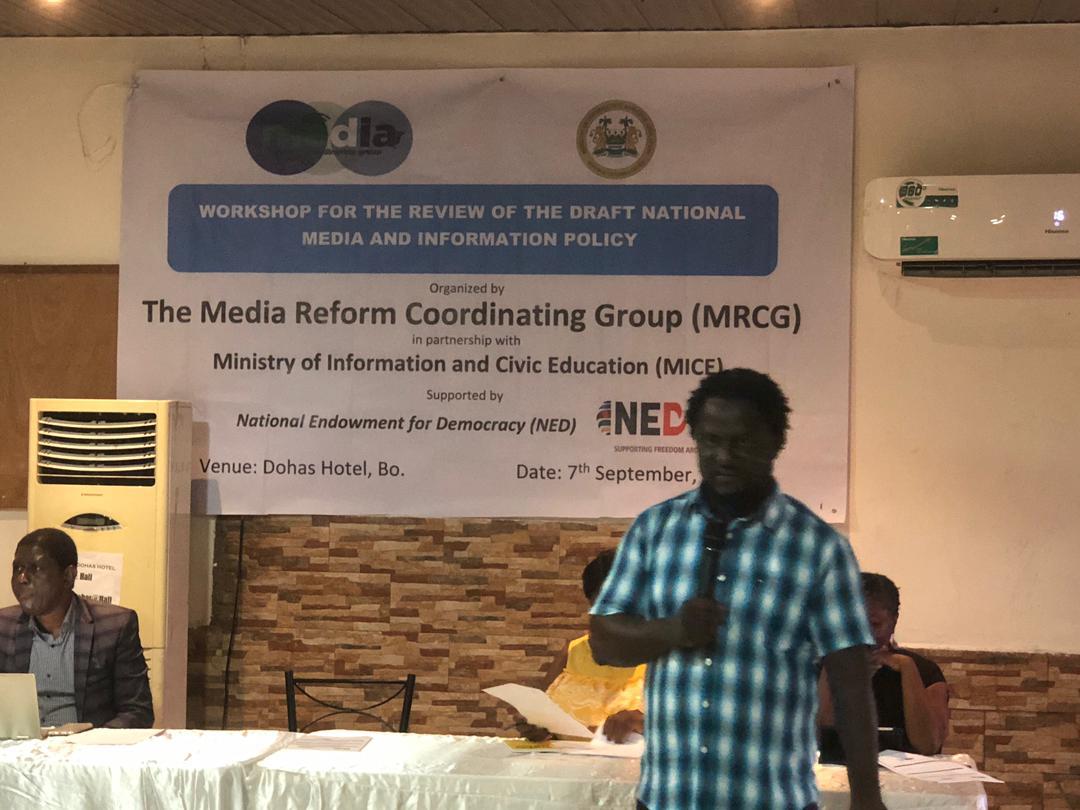
“It’s important to note that this is a complex process with several steps, which the facilitators will elaborate on later. Our primary goal today is to acknowledge the existence of this draft document. However, before engaging with the minister and his team, we must ensure that we do not present an outdated document. Therefore, updating and contextualizing these documents will provide a solid foundation for our discussions,” he stated.
- Sierra Leone Government Announces Strict Traffic Restrictions on Public Transport Corridors
- Hawanatu Sesay Tell Her Story on Winning The 2023 Women’s Prize of The Orange Social Venture Tech Queen Competition
- 6 Questions Sierra Leone Government Should Answer About Jos Leijdekkers And Current Drug Crisis
Dr. Victor Massaquoi, Chairman of the Independent Media Commission and the MRCG Board, emphasized the critical role of a well-defined information policy in reducing confusion and enhancing coordination. He acknowledged the rich content of the policy document, anticipating improved information flow and quality in Sierra Leone.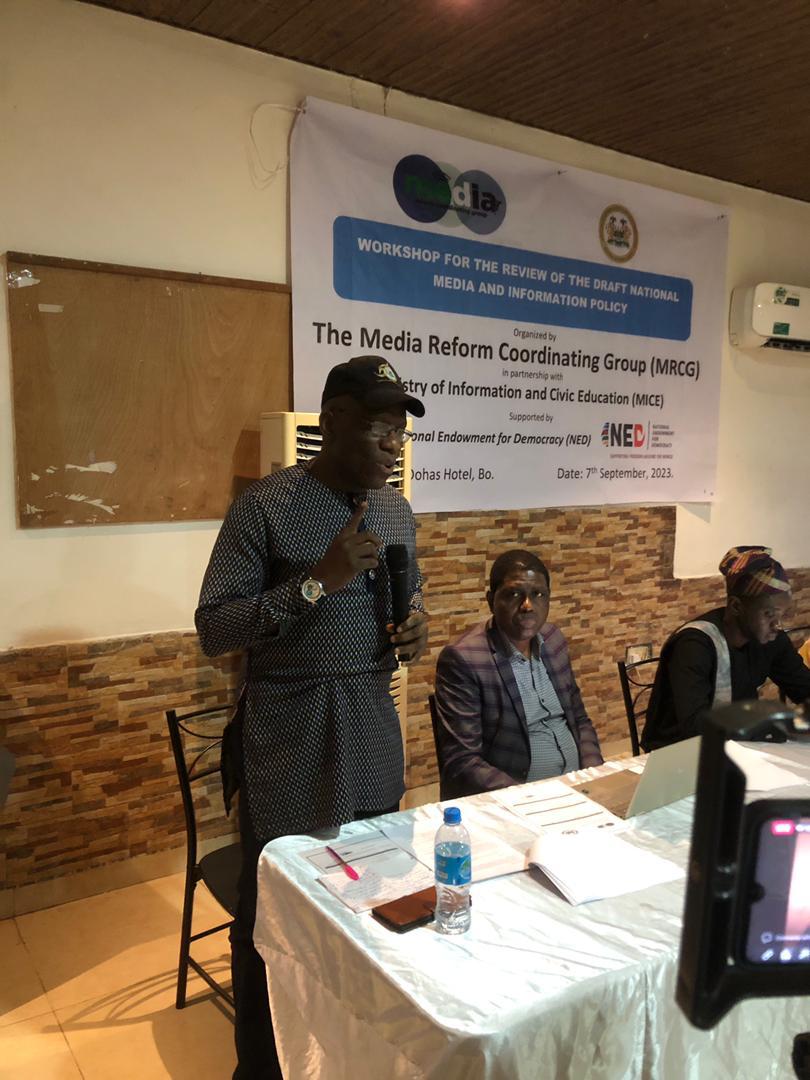
Estina Taylor, President of Women in the Media Sierra Leone, stressed the policy’s relevance in the digital age, particularly in addressing issues of misinformation, disinformation, and cyber security. Taylor highlighted the importance of gender equality in information dissemination, emphasizing the policy’s potential to combat gender bias and harassment while fostering an environment conducive to women’s professional growth.
Emmanuel AB Turay, Acting Director of Information at the Ministry of Information and Civic Education, emphasized the significance of the National Information Policy. He highlighted the necessity of having a comprehensive national policy to ensure the effective implementation and operation of information resources, services, and systems. “This policy aims to provide timely access to relevant information for citizens across the country, enhance coordination within the national information system, and align with existing legislation,” he said.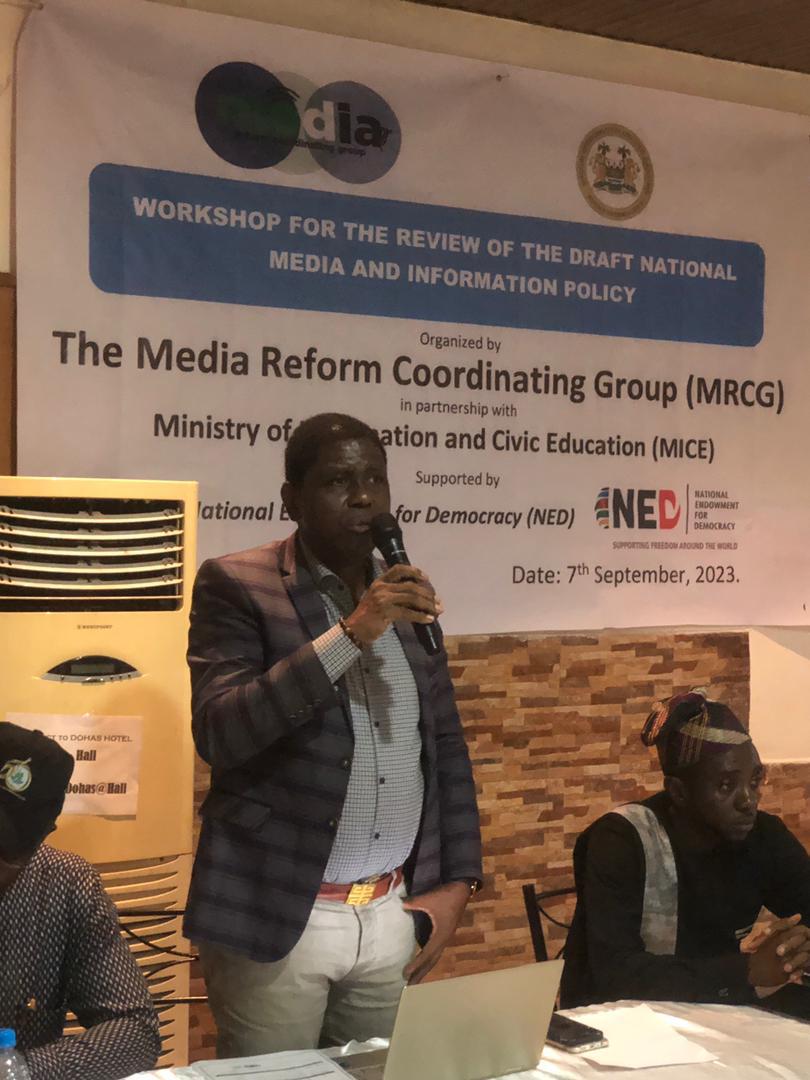
Turay also stressed the importance of a dedicated session to assess the current state of affairs and align with international standards to improve the national policy further. He furthered that the primary objectives of this policy include supporting national development initiatives, enhancing the quality of life for the citizens by facilitating systematic and secure communication through information strategies, and revitalizing investments in information and communication infrastructure.
In his keynote address, Hon. Chernor Bah, the Minister of Information and Civic Education, underscored the pressing need for reform in Sierra Leone’s information ecosystem. Bah lamented the existing dysfunction, describing it as so poorly organized that it seemed deliberately designed for chaos. He emphasized the absence of cohesion in messaging, a dearth of values and principles in communication, and the need for adherence to international standards.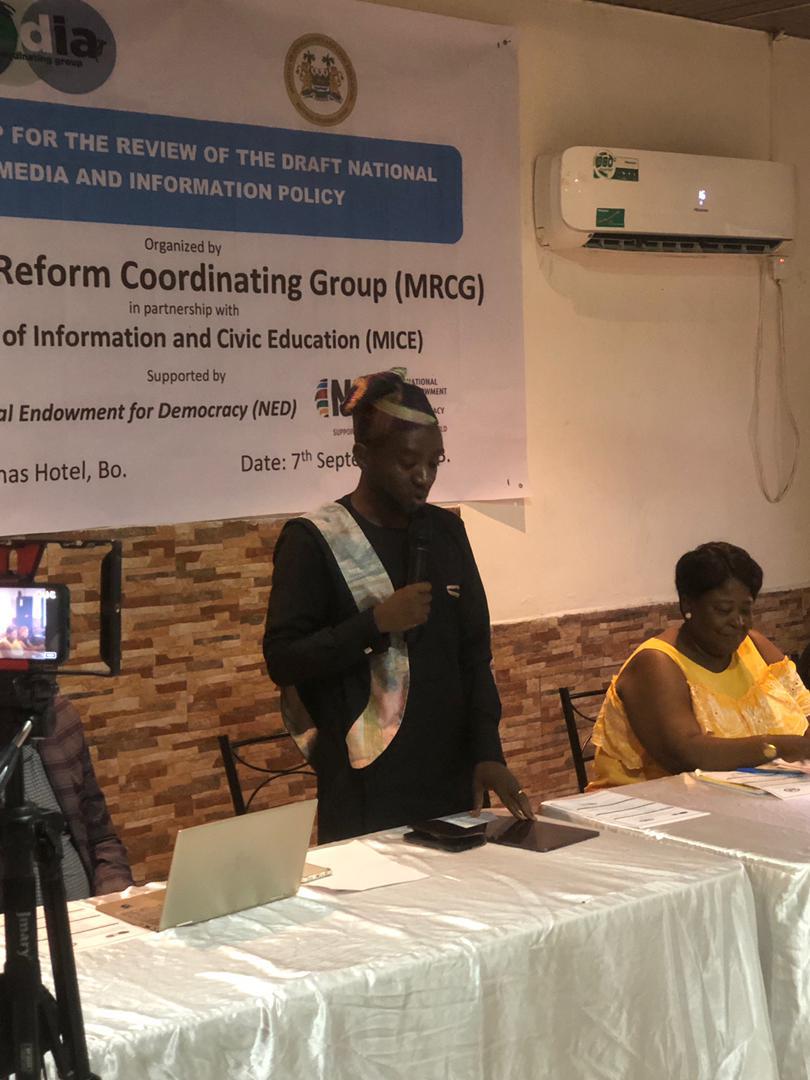
The Minister said that government institutions with outdated or non-functional websites face credibility issues when applying for grants from international organizations. “If they have a website that looks reasonably good, they will say that is an institution with some credibility. That is a foundational step, but we have government ministries in Sierra Leone that do not even think about updating their websites,” he stated. He emphasized that proactive information dissemination, rather than defensive measures, is key to countering fake news and negative propaganda.
He revealed that at the request of President Bio, they were conducting an assessment of Sierra Leone’s information architecture, aiming to map information flows and improve government-citizen interaction. “We want to see and map out where we are now in terms of information flow and use that map to propose how it ought to be for government to function well.”
He stressed the importance of civic engagement and feedback mechanisms, stating that citizens’ voices must be heard.” To achieve these goals, the development of comprehensive policies, such as the National Media and Information Policy, is essential,” he stated. The Minister commended MRCG for its efforts and called on all stakeholders to collaborate in achieving the outlined objectives.
The workshop concluded with a facilitative session led by Dr. Isaac Massaquoi and Umaru Fofana, followed by group work where members collaborated to generate ideas for the development of the information policy.


 1 Comment
1 Comment 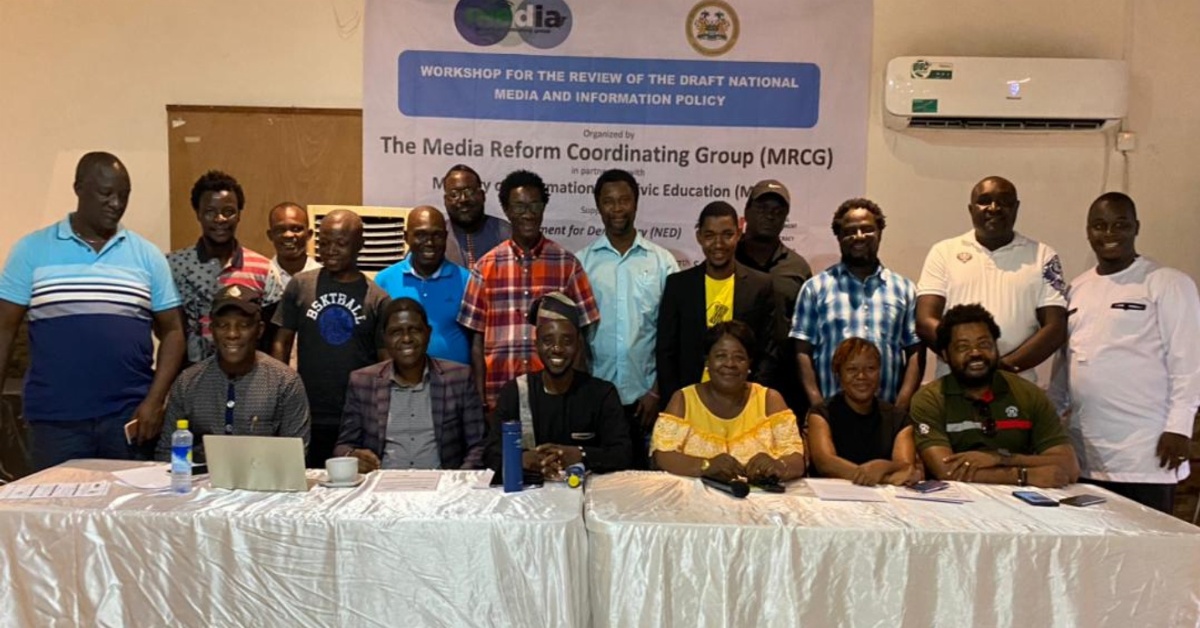









Who are the key stakeholders and participants expected to attend this workshop on the National Media and Information Policy?